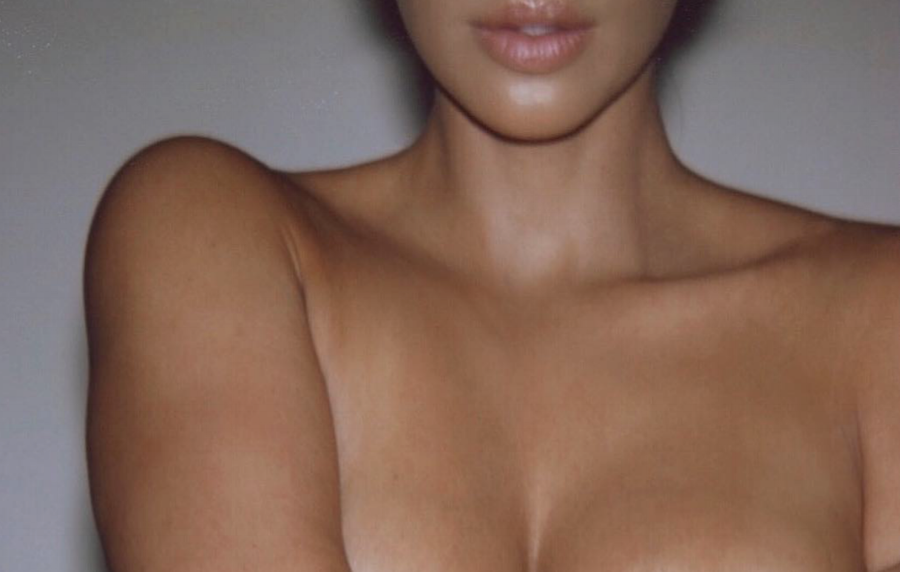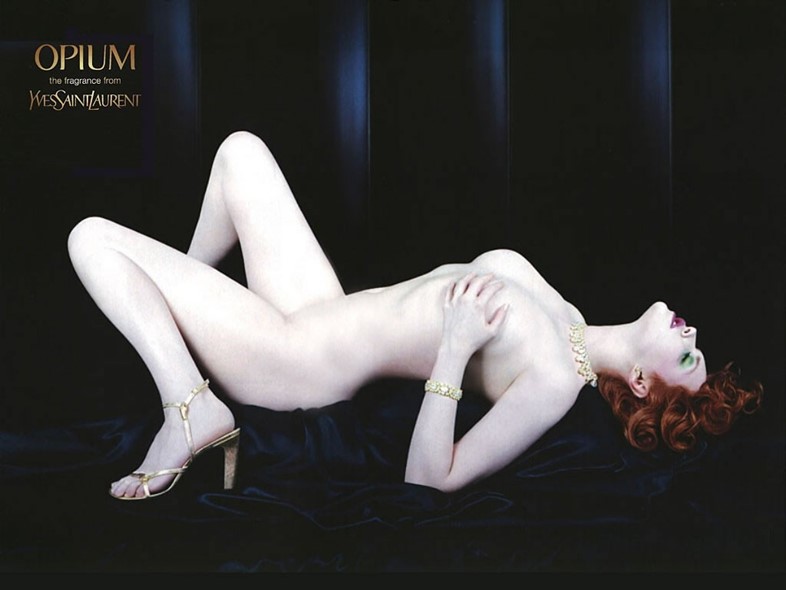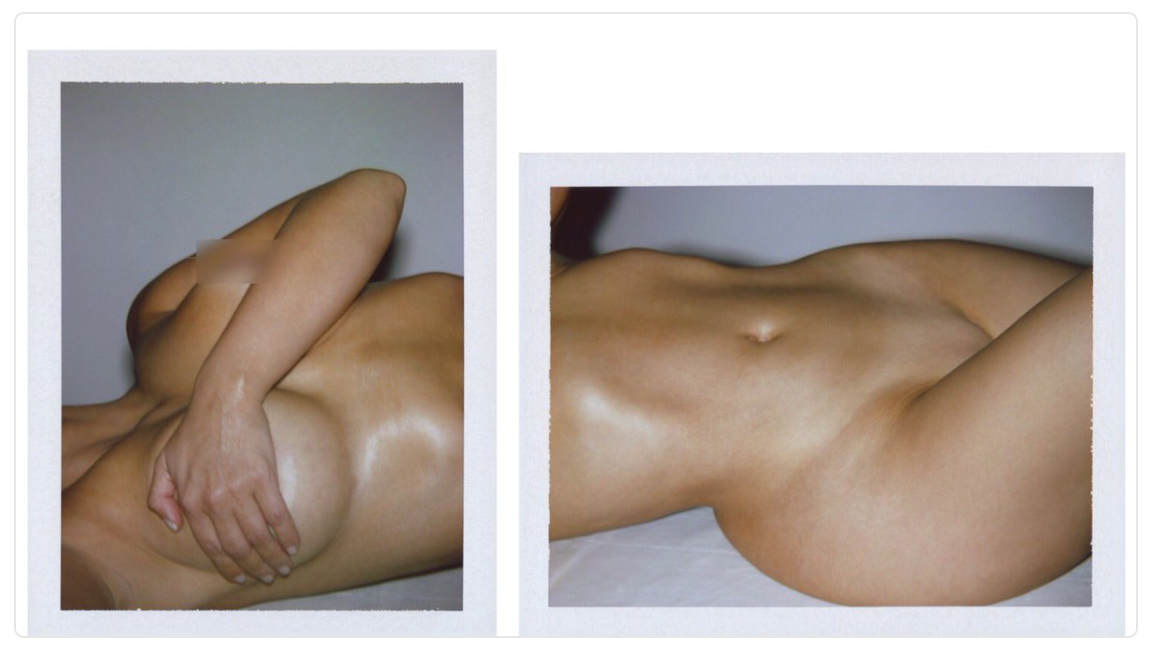
image: KKW
Sex sells fragrances. This has long been the understanding in connection with big name perfumes for the past several decades. Not only was the 1990’s and early 2000’s a heyday for big houses and over-the-top branding, it was, in retrospect, a period of overly sexual ad campaigns. Remember Tom Ford’s ad campaign for Yves Saint Laurent’s Opium perfume in 2000? It featured a fully naked Sophie Dahl lounging on her back and was plastered on billboard across the globe. Or how about the oh-so-provocative ads for Ford’s eponymous label’s fragrance collection? These campaigns, are the many others just like them, leave little to the imagination in an effort to hawk scents.
Once these overtly sexual campaigns become entirely common place in the fashion industry by the mid-2000’s, they began to slowly subside in favor of more modest approaches. Fast forward to late 2014 and even Gucci, which become synonymous with its sex-centric ad campaigns and was one of the slower brands to tone down its efforts to sell garments and perfumes by pushing sex, opted to cover up … a lot … under the watch of Alessandro Michele.

image: YSL
All the while, other brands made a sharp right turn towards modesty. For instance, Céline, the Paris-based design house, which during Phoebe Philo’s tenure guided the visual narrative of the industry and this generation of consumers, is notably reserved. And in a testament to the power of ‘leaving a bit to the imagination’ as a fashion statement, the New York Times’ Vanessa Friedman declared “modest fashion” a defining trend of the 2010s. She called it “the end of the naked look,” referring to the trend of barely-there dresses.
This looming trend translated from the runway and the red carpet to the real world. “Women who once bought strapless dresses with a little skirt are now buying evening gowns with sleeves and high necks,” Claire Distenfeld, the owner of Fivestory, the destination boutique on the Upper East Side of Manhattan, told the Times. And it found a home amongst budding young fragrance brands.
As Bloomberg reported in 2016, “Some [fragrance] labels are bucking the sex-sells trend, betting that a younger set of customers doesn’t crave hyper-sexualized, gender-defined fragrances.” In the age of the hyper-awareness that constant digital connectivity brings and more recently, in light of widespread pushes towards gender equality and against various forms of sexual harassment, a movement away from overt objectivity and the sexualization of women, a evolution towards more demure campaigns makes sense, advertising executives have said.
This is what Austin-based fragrance startup Phlur’s founder and chief executive, Eric Korman thinks. He told Bloomberg that the “gender stereotypes and generalizations that have applied over the past 25 years [and that are depicted in a lot of fragrance campaigns] don’t apply today. They don’t resonate.”
“It’s an easy message to tell,” he says. “Just not a very clever one.”

image: KKW
Korman, who used to run e-commerce for Ralph Lauren before he started out on his own, says it feels a bit more of-the-moment to not bombard consumers with dated gender stereotypes and/or overly-sexualized advertising. And he is not alone. No shortage of other upstarts are using ad campaigns and brand imagery to focus on the fragrances, themselves, sans the sex-drenched messaging.
However, at least one new name in the fragrance game is bucking the trend of covering up: Kim Kardashian. The reality-star-turned-bona fide mogul took to Instagram on Tuesday to tease her newest beauty venture, a fragrance called Body. The promo posts were, of course, images of her body, shot by the famed contemporary artist Vanessa Beecroft.
Interestingly enough, at least a couple of the images (pictured directly above) look to be an ode to YSL’s oh-so-controversial campaign.
As noted by Harper’s Bazaar, no shortage fans almost immediately began “chastising Kardashian West [by way of the comments section of the KKW Instagram account] for the KKW Body campaign images, claiming that they are too obscene.”
This is hardly a novel response. When YSL launched its aforementioned Sophie Dahl Opium campaign, consumers filed almost 1,000 complaints with the British Advertising Standards Authority, calling the Steven Meisel-lensed campaign … obscene, and making it one of the most complained of ads in the advertising watch dog’s history.
The clincher: Opium is one of YSL’s best-selling scents.













